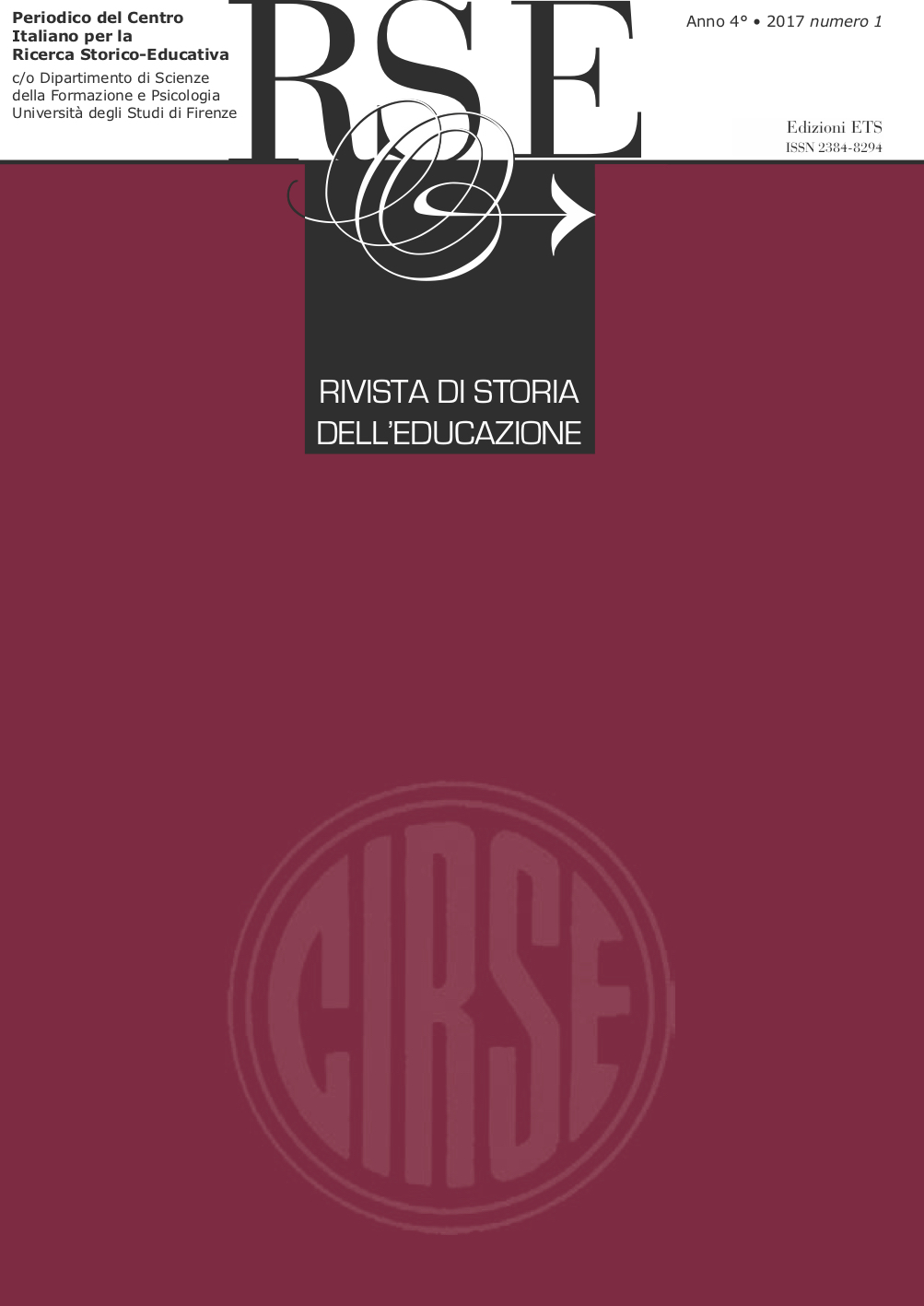The Inspection Staff in France in the Nineteenth Century (1802-1914): between affirmation of the State’s prerogatives and local scholastic context
Published 2018-06-04
Keywords
- Inspection Staff, 19th century-Centralization, State control, local realities
How to Cite
Abstract
All along the 19th Century, the progressive claim of the French School State emerged with the implementation of a more hierarchized and coherent educational system. The specialised types of inspectors – The General Inspectors (1802) and the Primary School Inspectors (1835) – supported by the Academic Directors of Education (1808) and the Regional Inspectors who were provided with extended missions, progressively imposed a strict national framework to the teachers. With their inspections, through their formative monitoring and the implementation of educational instructions clearly explaining the school and academic activities, the State School took place and disseminated a national culture. However, that imposed culture and enacted common educational framework met numerous local oppositions. In fact, for daily work, a balance had often to be found with local authorities; and according to the local contexts, schools were led to put forward some accommodations that could be accepted if they did not negate the national priorities.

